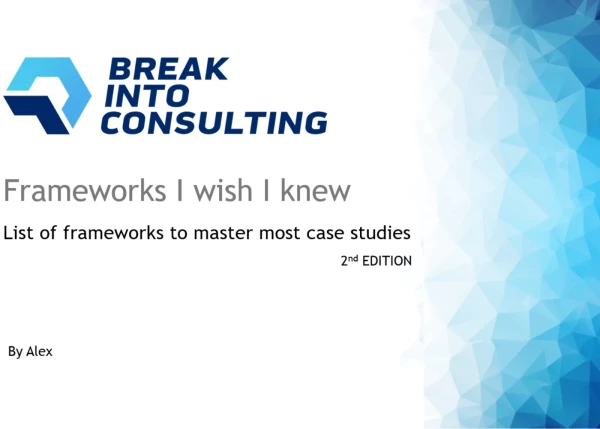I have been preparing for a few upcoming interviews, and have faced the following two recurring questions frequently during my case prep process. Usually, there is further information which helps me substantiate my choice, but a lot of times the questions below are posed as it is (was asked to me by an MBB interviewer) and I feel like I could have answered it better:
1. If it is a growth case and I am to choose between 2 regions for expansion, one that has a small footprint for the client but high expected market growth rate, and one that has a large existing footprint but low expected growth rate, which is a better market to focus on? (if the answer is 'it depends', what factors does it depend on? Let's take the example of a prototype industry like Healthcare)
2. In a market entry case, if I have to choose between 2 countries to expand into, one of which has a concentrated market with two market leaders and the other which has a fragmented market with multiple smaller companies, which country should I choose? (Again, if the answer is 'it depends', what factors does it depend on? Taking the example of the Healthcare industry for ease of comparison)
Thanks for your help!











Why should you be able to get more market share if there are few strong competitors? That doesn't make much sense to me
Because it is much easier to get, say, 5% market share if you only have 2 or 3 players in the market, as opposed to a situation with dozens of competitors, where 5% market share would be equivalent to becoming a leading player immediately (usually not very realistic)